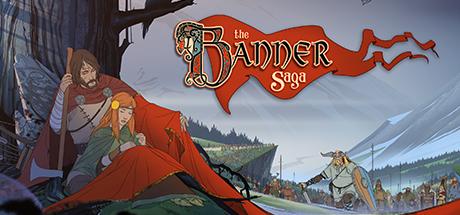Technischer Direktor von Banner Saga äußert sich zum Zustand des Spiels und zu Linux als Spieleplattform

John Watson, der technische Direktor des mit viel Beachtung bedachten Indie-Titels "Banner Saga", hat sich in dem Studio-eigenen Forum in einem aktuellem Post zum Zustand des Spiels unter Linux als auch zu Linux als Spiele-Plattform generell geäußert.
Derzeit ist das Spiel unter Linux nicht wirklich spielbar, und es ist den Entwicklern durchaus bewusst. In dem Haupt-Zweig auf Steam darf man sich glücklich schätzen, wenn man in den Kämpfen auf FPS im einstelligen(!) Bereich kommt.
Es gibt zwar bereits einen Beta-Zweig namens "linuxfix" und bei diesem laufen die Kämpfe auch viel flüssiger ab, aber dieser Beta fehlen andere Features wie z. B. die Musik oder Lokalisierungen.
Die Firma hofft im November die vollständige Version auf Steam zu veröffentlichen. Weitere Details zur Beta gibt es in diesem forum auf Steam.
John Watson war laut eigener Aussage vor dem Einstieg in die professionelle Spiele-Entwicklung viele Jahre zu 100% Linux-Benutzer. Unter anderem entwickelte er einen Unix/Linux-Leveleditor für Quake, und sein erstes Amateur-Spiel entwickelte er ebenfalls unter Linux und cross-kompilierte die Windows-Version.
Die von ihm gefällte Entscheidung, auf Adobes AIR statt auf Unity als Engine zu setzen, würde er in der selben Situation damals auch wieder so fällen, so Watson auf Nachfrage eines Benutzers des Forums.
Zu Beginn der Entwicklung von Banner Saga gab es einen Prototypen in Unity, aber dieser sei wegen damaliger technischen Einschränkungen der Unity-Engine bei ihm durchgefallen. Heute sei Unity seiner Meinung nach die beste Wahl für viele Dinge.
Weiterhin bedauert Watson es, dass der Linux-Spielemarkt noch immer sehr klein sei. Die Linux-Version von "Banner Saga" macht in den Gesamt-Verkäufen unter 1% aus, und heute, sechs Monate nach dem Release für Linux, habe sie sich ungefähr nur zu einem Viertel amortisiert. Er rechnet -basierend auf den Zahlen der letzten drei Monaten- damit, dass die Linux-Version in 70(!) Monaten auf eine schwarze Null kommt. Watson geht aber auch davon aus, dass die Zahlen besser wären, wenn der Release zeitgleich auf allen Plattformen stattgefunden hätte.
Zum Schluss äußert sich Watson, dass er neugierig darauf ist, wie die "Steam-Machines" den Linux-Markt für Spiele verändern werden. Wenn jemand etwas verändern könnte, dann wäre es Valve.
Hier nun der vollständige Post aus dem oben genannten Forum. Die mit ">>" gekennzeichneten Quotes stammen von Benutzern des Forums.
>> Being left on your own fate to roam into uncharted territories is kinda bad, yes... Even more so if you relied on that high-level/complex technology to make your life easier, and it just sweeps your feet from under you =/ If you were thrown back to 2012, would you have gone with AIR again?
Yes, I probably would. It certainly made the initial development of the game go faster, as well as the porting to mobile. However, I might consider writing the entire engine in a language like C++ instead of AS3. Still using AIR for the platform-specific framework and the its low level renderer, but keeping all that behind a nice abstract interface that can be swapped out later. I'd have to think about that some more though, to determine if it's really feasible.
I did make a prototype of the game in Unity back in 2012 as well, but based on some technical limitations at the time, I felt it was not quite ready to trust for the project. Of course, these days it seems like Unity is the best choice for many things.
>>Thanks for the heads up on the PS & XB ports as well as for the Linux problems. That Linux community has developed a patience throughout the long years of waiting (usually last in line, after Windows/Mac etc), but it's better not to overtax it!
Agreed with that. Before I got into professional game development I was 100% on Linux. My first amateur game was actually developed on Linux and cross-compiled for Windows. I wrote a Linux/Unix level editor from scratch for Quake because I hated having to reboot to use Worldcraft or whatever I was using back then to make Quake maps. I can still vividly remember the joy I had, and the hours I played, when Loki games ported Heroes of Might and Magic III to Linux.
The downside for small developers like us is that Linux is such a tiny fraction of the gaming market that developing for it is pretty much a labor of love and there's no expectation for it to even pay for itself in sales. I can tell you that Linux amounts to less than 1% of TBS sales, and that 6 months from the TBS Linux release, we are about 25% of the way to the port paying for itself, and if the current 3 month moving average holds steady it will pay for itself in only 70 more months of sales. However we both know that game sales always decline rapidly over time. Now, if we could manage a simultaneous release, things might be a bit rosier financially. I'm also very curious what will happen to the Linux market when the Steam Machines hit the market in November. If anybody can pull off a game-change like that, Valve can.
